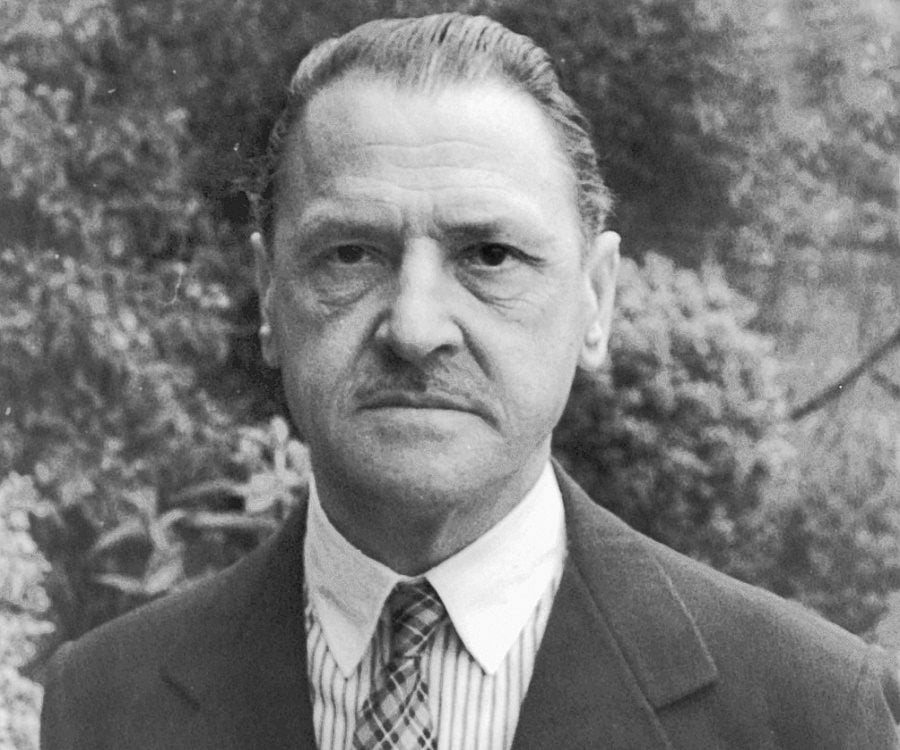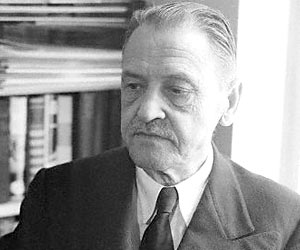William Maugham
| Famous as | Novelist & Playwright |
| Born on | 25 January 1874 |
| Born in | Paris, France |
| Died on | 16 December 1965 |
| Nationality | France |
| Works & Achievements | Oh Human Bondage, Rain & The Letter |
Childhood & Education
Maugham was born on 25 January 1874 in Paris in an English family.
His father was an English lawyer and solicitor to the British Embassy in
Paris. His grandfather was also an English lawyer and a cofounder of
the English law society and it was expected that Maugham would follow
his father and grandfather in their successful legal career. His brother
Viscount Maugham followed the elders in their footsteps and became a
Lord Chancellor. However, Maugham did not show any willingness towards
their legacy.
Maugham's mother Edith Mary died at the age of 41, followed by his
father two years later. Now orphaned, Maugham was moved to England at
his uncle's place in England. His uncle Henry Maugham, the Vicar of
Whistable, prove to be cold and emotionally cruel to the young Maugham
and his unsympathetic treatment would lead him to develop a stammer.
Maugham was sent to the King's Canterbury which proved to be the
extension of the humiliation and indifference he suffered at home.
Life became miserable and he left the school at the age of sixteen. He moved to Germany where he enrolled in Heidelberg University to study literature, philosophy and German. During his stay in Germany, Maugham first acknowledged his homosexuality after his first sexual encounter with John Ellingham Brooks. On the completion of his degree there, Maugham returned to England and found a position in an accountant's office with his uncle's help. Though he left the job soon and it further displeased his uncle. He finally persuaded him into the profession of medicine and sent him to the King's College, London, where he spent another five years studying medicine. Early Years & Career
Though he was never interested in the profession of medicine and
took it only to appease his uncle, he claimed it to be contributing to
his talent as a writer. According to him, it made him able to look in to
human emotions, suffering and pain and see the misery of life. By this
time, he had begun writing books
and working upon literary ideas. Liza of Lambeth, a short story based
upon adultery in working class was a reflection of his own experience as
a medical student. The book proved popular with the readers who found
it 'real and thoughtful' and acted as a driving force in leaving the
medical profession to become a writer. After a steady beginning, his
next big success came with a play Lady Frederick in 1907 and he followed
the success with another four plays that came in the next year.
Road to Success
By the late 1914, Maugham had become famous and had published as
many as ten plays and ten novels. With the onset of the World War I, he
joined the British Red Cross's "Literary Ambulance Drivers", with other
23 popular writers including E. E. Cummings and Ernest Hemingway. He
continued to produce novels and edit previous works. Of Human Bondage,
another novel written during this period and his masterpiece, appeared
in 1905 and received a mixed reaction initially from the literary
society of England. However, it gained popularity with time and it has
since never been out of print.
In 1916, Maugham embarked upon writing The Moon and Sixpence, a
novel based upon the life of Paul Gauguin. He voyaged to the Pacific for
the necessary research work accompanied by Haxton, his companion and a
long time lover. During this period he wrote Ashenden, a collection of
short stories about a gentleman and indifferent spy. In 1922, Maugham
produced a book of 58 short story sketches, based upon his travels to
China and Hong Kong. Maugham's play The Letter, was performed in London
in 1927 and was later adapted in to a film
in 1929 and then in 1940. With the collapse of France, he left the
country, though his prodigious output of play and novels continued to
emerge and he became the most popular and highest paid writer in the
English literature.
Marriage & Personal Life
By this time, his homosexuality had become known to everyone and he
was often dragged into controversies for to his sexual orientation.
Nonetheless, he also had affairs with many women among which the most
enduring was with Syrie Wellcome, wife of American-born Englishman Henry
Wellcome. hsi romance with Syrie resulted in a daughter Liza and
Syrie's divorce with his husband Henry. In May 1917, Maugham married
Syrie accepting Liza as his daughter. The marriage became strained due to his contemptuous relationship with Haxton and they divorced around 1927.
Later years & Death
Now a refugee in the United States, Maugham widely worked in
Hollywood as a script writer. Even in his sixties, he did not try to
conceal his sexual orientation and continued his relationship with his
male friends. After the death of Gerald Haxton in 1944, he found his new
companion in Alan Searle, another Englishman. Controversies once again
stirred up with their open admission of the relationship, though it had a
little effect on Maugham.
In 1962, Maugham fell out with his daughter Liza over the illegal
selling of his paintings that were assigned to her. Liza sued her father
for the compensation and he responded by disowning his daughter in
public. He went as far as attacking his late wife Syrie in his memoir
Looking Back, published in 1962. It was discovered in the memoir, that
Liza was born before her parents married. The incident damaged his
reputation and he was shunned by his own people after the heinous
unveiling.
Maugham also claimed Searle as his son and towards the end of his
life; he bequeathed Searle a large sum of $ 50,000 and his copyright
acts for 30 years after which it was to be passed to the Royal Literary
Fund. W. Somerset Maugham died on 16 December 1965 and his remains were
scattered near the Maugham Library, The King's School in Canterbury. His
daughter Liza died in 1998.
Notable Works
Among his most important works is the novel Of Human Bondage and is
also considered his masterpiece. The novel is a semi autobiography with
the main character Philip Carey depicted as an orphaned child, like
Maugham, and brought up by his self-righteous uncle. Another novel The
Moon and Sixpence, which gave him a stunning success,is a real life
based story of Paul Gauguin. On of his most famous novels, The Razor's
Edge was published in 1944 and has been adapted in to movies. Maugham
also wrote some fine short stories among which Footprints In The Jungle,
Rain and The Outstation are considered his best work in this genre. A
prominent travel writer, he authored The Gentleman in the Parlour, an
account of his travels to Burma, Vietnam and Cambodia.
| ||||
Timeline: | ||||
1874- Maugham was born on 25 January.
1905- Of Human Bondage, another novel written during this period, appeared.
1916- Maugham embarked upon writing The Moon and Sixpence.
1917- Maugham married Syrie.
1922- Maugham produced a book of 58 short story sketches.
1927- Maugham's play The Letter, was performed in London.
1944- The Razor's Edge was published.
1962- Maugham fell out with his daughter Liza.
1962- He wrote his memoir Looking Back.
1965- W. Somerset Maugham died on 16 December.
1998- His daughter Liza died. |










0 comments:
Post a Comment